Why Peat free Compost | The Enduring Gardener
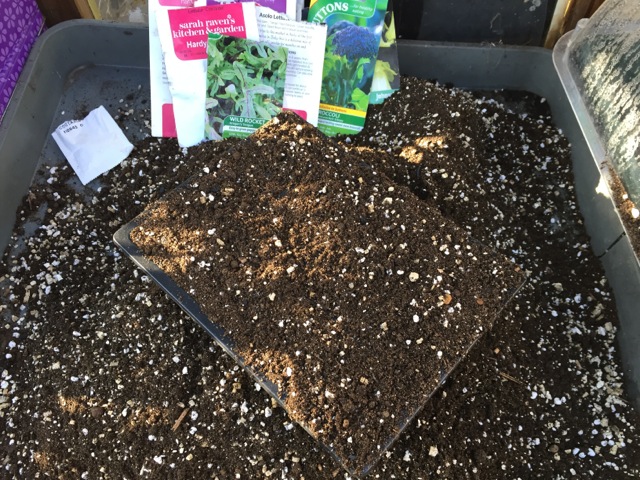

21st February 2020 • General • Stephanie Donaldson
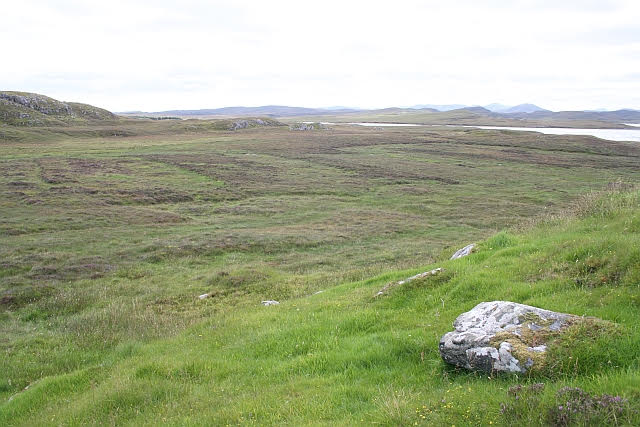

©geograph.org.uk
- Peat bogs cover just 3% of the earth’s surface but store 30% of the world’s carbon.
- They are the world’s largest carbon sink, storing more than all other types of vegetation combined
- The peat forming process is very slow – it can take a hundred years to form one metre of peat
- Draining, harvesting or burning peat releases hundreds of years of stored carbon into the atmosphere accounting for 5% of global greenhouse gas emissions
- “Every time you use a peat-based compost in the garden, you are deliberately participating in the destruction of a non-renewable environment that sustains some of our most beautiful plant and animal life. No garden on this earth is worth that.” Monty Don
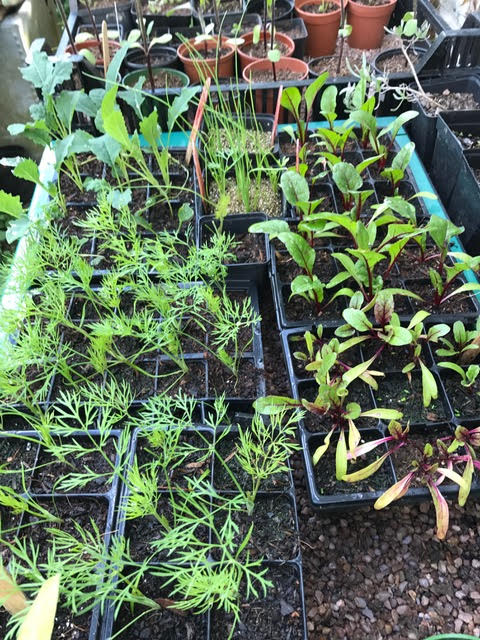
There is no longer any good reason for amateur gardeners to use peat. Historically it was readily available, cheap and provided consistent results – rather like using coal to heat our homes. We now know the environmental cost of using these resources and need to look elsewhere. There are good alternatives available for both the professional and amateur market. In the past there were problems with the formulations, but now the best are every bit as good. If germination is not quite high as it is in peat-based composts (and this is debatable) this really doesn’t matter for ordinary gardeners because we all tend to grow far more seeds than we need. Less is more when it comes to seed sowing, but few of us resist an extra sprinkling of seeds! The difference between peat and its alternatives is that they are by-products or crops that do not require destroying a habitat. My favourite is a potting compost formulated from composted bark, which is a by-product of sustainable forestry in the UK and is endorsed by the Royal Horticultural Society. Coir is coconut husk and although this is imported, it is in a hugely compacted form and provides an important income for the producers. Bracken can be treated as a crop, cut annually and composted and sheep’s wool is a natural slow-release nitrogen fertiliser.
Peat-Free Composts
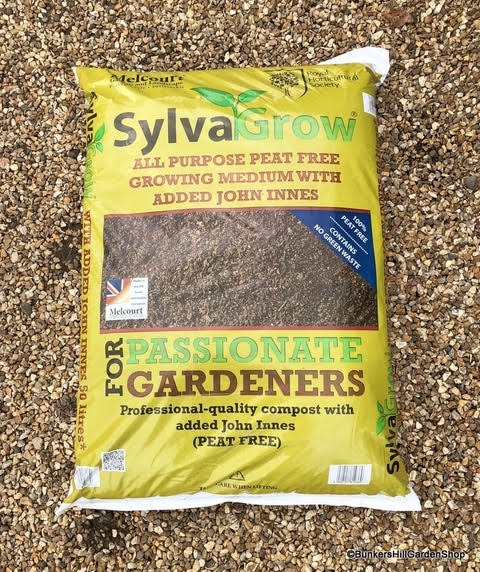
1. Sylvagrow produces a range of sustainable peat-free composts based on composted bark, wood fibre from sustainably-managed UK forests and coir. There are 6 different formulations: Sustainable Growing Medium; Sylvagrow with added (peat-free) John Innes; Peat-free planter (growbag) for Organic Growing; Organic Growing Medium; Tub and Basket; Ericaceous Compost. They are now offering a Bag for Life Service where retailers sell customers a bag for £2 that can be refilled, rather buying another plastic sack every time.
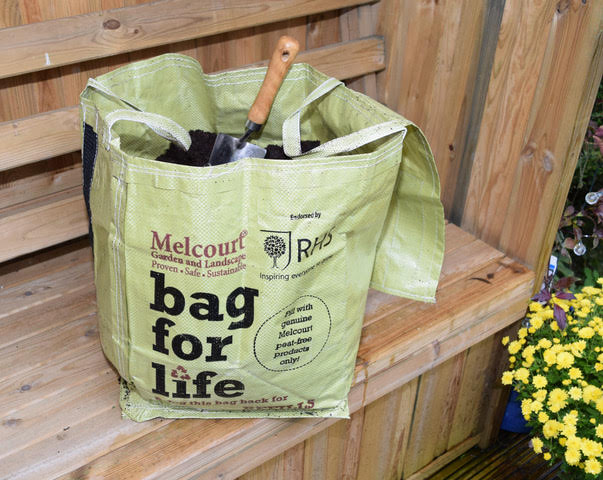
Ask your local retailer if do or would consider offering this service. Bud Garden Centre in Manchester alerted me to it, also available at www.edibleculture.co.uk in Faversham and www.gardensage.co.uk at Burgess Hill. According to the makers of Sylvagrow there are currently seven or eight of their retailers offering bags for life, but there is huge interest, especially from small nurseries who are prepared to make the extra effort. Find out about Sylvagrow at www.melcourt.co.uk
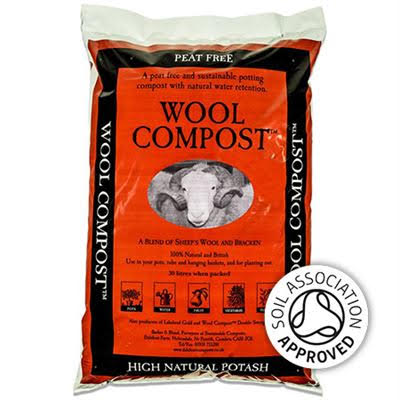
2. Dalefoot – Potash-rich bracken forms the base for all their composts. Herdwick sheep’s wool is blended into their Wool Composts for improved water retention and slow release nitrogen. All composts are approved for organic growing, are completely peat free and do not use green waste. Their range includes wool compost; wool compost for seeds; for vegetables and salads; ericaceous, wool compost for tomatoes www.dalefootcomposts.co.uk
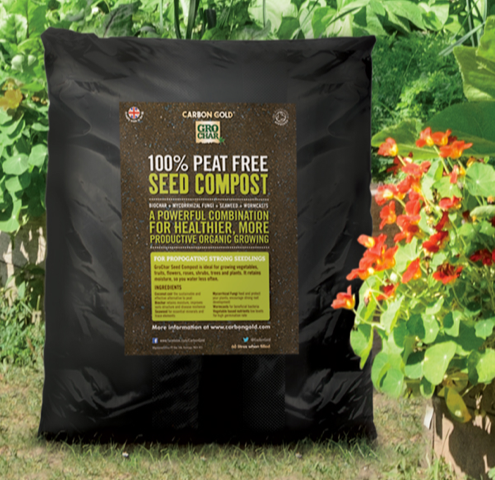
3. Carbon Gold – organic Seed and All Purpose Compost combine organic coir with biochar. Biochar is a very pure, high-carbon form of charcoal that improves the structure, aeration, water-holding capacity and nutrient retention of soils while providing permanent home for beneficial microbiology. Carbon Gold’s biochar is enriched with fungi, trace nutrients and beneficial bacteria. It’s organic,100% chemical-free www.carbongold.com
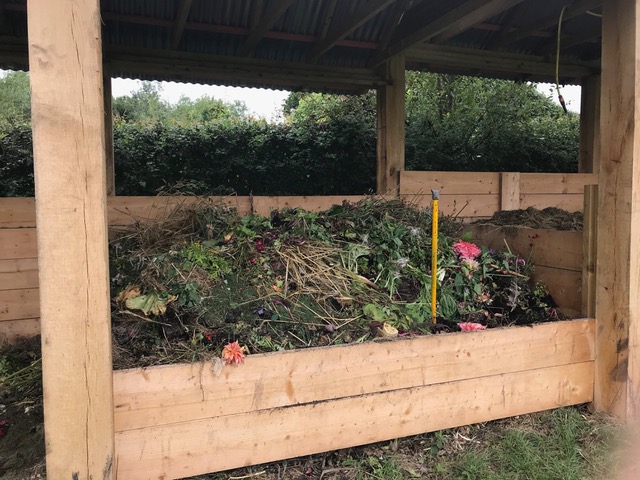
4. Homemade – buying potting composts can be an expensive business and there is also the consideration of the plastic sacks they are packed in. If you have access to leaf mould and homemade compost, making your own seed and potting compost is a more environmentally friendly way to go. I would recommend that you buy loam to avoid weed seeds and you will need coarse sand, horticultural grit and possibly vermiculite, so you won’t be entirely plastic-free.
Seed Compost Recipes:
33% each each loam, leaf mould and coarse sand
Or – the following 2 recipes from Monty Don
25% sieved compost, 50% leaf mould, 15% vermiculite or Perlite;
10% loam
Potting on Compost:
33% sieved compost, 33% leaf mould, 25% grit, 10% loam
And Now for Something Completely Different
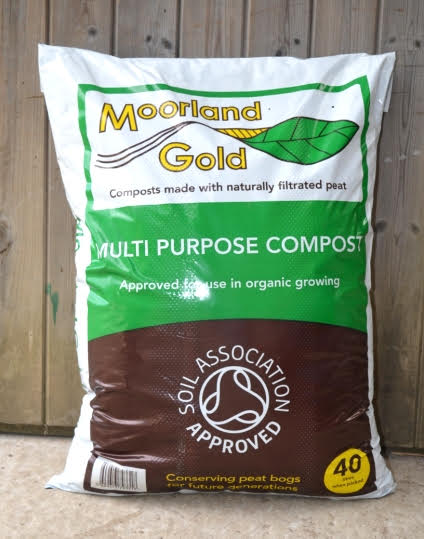
Moorland Gold does actually contain peat, but is the natural run-off from the moors that is filtered out by the water companies so that it does not clog their pipes. It is Soil Association approved and is available as Multi Purpose; Seed & Cutting; Potting and Container; Grow Bags www.westridingorganics.co.uk
Finally
Always ask whether the potting compost you are buying is peat free and check whether the garden centre staff are properly informed about the difference – or they may just fob you off with a product containing peat. Unless a plant is labelled as grown in peat-free compost it will contain peat, so it’s not just a matter of avoiding the composts – start to actively seek out and buy plants that are labelled as grown peat-free.



